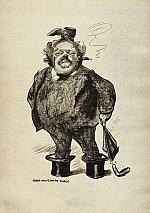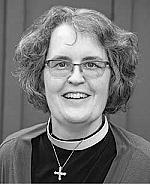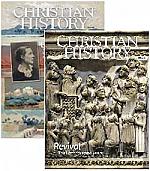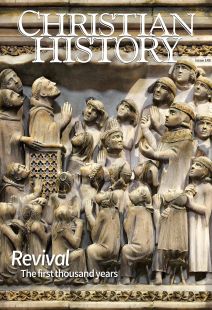Recommended resources: Medieval renewals
Books
To learn more about early medieval renewal, look at Jean Leclercq, The Love of Learning and the Desire for God (1966); Bernard McGinn, Christian Spirituality: Origins to the Twelfth Century (1987); John Binns, Ascetics and Ambassadors of Christ (1994); R. A. Markus, Gregory the Great and His World (1997); Richard Fletcher, The Barbarian Conversion (1998); C. H. Lawrence, Medieval Monasticism (3rd ed., 2000); Marilyn Dunn, The Emergence of Monasticism (2003); Jennifer L. Hevelone-Harper, Disciples of the Desert (2005); and Carmen Acevedo Butcher, Man of Blessing: A Life of St. Benedict (2006).
Read about the Gregorian and Cistercian reforms in Uta-Renate Blumenthal, The Investiture Controversy (1988); Colin Morris, The Papal Monarchy (1991); Gerd Tellenbach, The Church in Western Europe from the Tenth to the Early Twelfth Century (1993); Giles Constable, The Reformation of the Twelfth Century (1996); Christopher Brooke, The Age of the Cloister (2003); and Jean Truax, Aelred the Peacemaker (2017). Learn specifically about Bernard of Clairvaux in Gillian Evans, Bernard of Clairvaux (2000); and Brian Patrick McGuire, Bernard of Clairvaux (2020) and (as editor) A Companion to Bernard of Clairvaux (2011).
Learn about Joachim of Fiore and apocalyptic thought in Bernard McGinn, Visions of the End (1979); and Randolph Daniel, Abbot Joachim of Fiore and Joachimism (2011). To understand the Waldensians, look at Euan Cameron, Reformation of the Heretics (1984), Waldenses (2001), and (with Marina Benedetti) A Companion to the Waldenses in the Middle Ages (2022); Gabriel Audisio, The Waldensian Dissent (1999); and Giorgio Tourn, You Are My Witnesses (1989).
Encounter Francis of Assisi and the Franciscans in Randolph Daniel, The Franciscan Concept of Mission in the High Middle Ages (1975); William Short, The Franciscans (1989); Paul Sabatier, The Road to Assisi (the updated 2004 version of the 1920s classic); Michael Robson, ed., The Cambridge Companion to Francis of Assisi (2012); André Vauchez, Francis of Assisi (2013); and Jon Sweeney, When Saint Francis Saved the Church (2015) and (as editor) The Complete Francis of Assisi (2015). G. K. Chesterton’s famous St. Francis of Assisi (1923) is still worth reading (and is available for free online).
Learn more about medieval mystics in Elizabeth Alvilda Petroff, Medieval Women’s Visionary Literature (1986); Joan Nuth, God’s Lovers in an Age of Anxiety (2001); Glenn E. Myers, Seeking Spiritual Intimacy: Journeying Deeper with Medieval Women of Faith (2011); and Greg Peters, Thomas à Kempis (2021). You may also want to look at our fuller Recommended Resources in CH #127.
Read about late medieval preaching and related reforms in Matthew Spinka, John Hus (1968); Anne Hudson, The Premature Reformation (1988); Augustine Thompson, Revival Preachers and Politics in Thirteenth-Century Italy (1992); Patrick Macey, Bonfire Songs (1998); Beverly Mayne Kienzle, The Sermon (2000); Siegfried Wenzel, ed., Preaching in the Age of Chaucer (2008); Beth Allison Barr, The Pastoral Care of Women in Late Medieval England (2008); and Nicholas Orme, Going to Church in Medieval England (2021).
For Reformation resources, start with Euan Cameron, The European Reformation (1991); David Steinmetz, Reformers in the Wings (2001); Diarmaid MacCulloch, The Reformation (2003); Alister McGrath, Christianity’s Dangerous Idea (2007); James Payton, Getting the Reformation Wrong (2010); Brad Gregory, The Unintended Reformation (2012); Thomas F. Mayer, ed., Reforming Reformation (2012); John O’Malley, Trent (2013); and Matthew Barrett, The Reformation as Renewal (2023). Also, consult our five-issue series on the Reformation. If you don’t have hard copies, digital versions are available for free online.
Past CH issues
Related past issues of Christian History can be read online; some print copies are still available for purchase.
3: Wycliffe
12 and 120: Calvin
22: Waldensians
30: Women in the Medieval Church
34, 39, and 115: Luther
40: The Crusades
49: Everyday Faith in the Middle Ages
68: Jan Hus
108: Charlemagne
110: Vocation
116: 25 Writings
118: People’s Reformation
122: Catholic Reformation
127: Medieval Lay Mystics
Videos from Vision Video
Relevant videos include Francis and Clare of Assisi, St. Clare of Assisi and Poor Clares, Hildegard, and two from our Pioneers of the Spirit series, Julian of Norwich and Hildegard of Bingen. Learn more about proto-reformers with John Wycliffe: The Morningstar and a newer docudrama, John Wycliffe: Morningstar; as well as John Hus—A Journey of No Return, and Truth Prevails: The Undying Faith of Jan Hus. Vision Video has many Reformation-related films, but most helpful for this issue’s focus are This Changed Everything and Protestant Reformation at 500 Years. Some of these titles are only available via digital download; you may access more content by streaming on Redeem TV.
Websites
As always many public-domain primary source documents referenced in this issue can be found at the Christian Classics Ethereal Library and at Gutenberg.org. (You will also find older secondary sources at Gutenberg.) Have a look at the Internet Medieval Sourcebook and the Internet Modern Sourcebook as well. All kinds of medieval texts (both secular and religious) can be found at Middle English Texts. Reformation-era sources in particular can be found at the Post-Reformation Digital Library and Project Wittenberg.
Some of the groups dedicated to the study of movements and people in this issue include the American Waldensian Society, Cistercian Publications, Franciscan Institute, International Medieval Sermon Studies Society, Lollard Society, Medieval Academy of America, New Chaucer Society, the Order of St. Benedict’s historical site, Sixteenth-Century Society, and the Society for Reformation Research.
The modern Franciscan order is at OFM.org. Multiple Cistercian sites highlight specific groups, but a Cistercian abbey in Dallas has put together a particularly rich set of historical resources about the order. An extensive website devoted to Chaucer’s life and works is at Harvard University, and a set of resources on every aspect of medieval life including both primary and secondary sources is at Online Medieval Sources. You may also want to look at UMILTA, an idiosyncratic website devoted to the study of women mystics (mostly medieval) and Chaucer. CH
By the editors and authors
[Christian History originally published this article in Christian History Issue #149 in 2023]
Next articles
Did you know? Best of CH
Memorable “Did you know?” facts from 150 issues of CH
editors and contributorsManaging editor’s note
The vision that Ken had from the very beginning lives on at Christian History Institute's core.
Kaylena Radcliff








